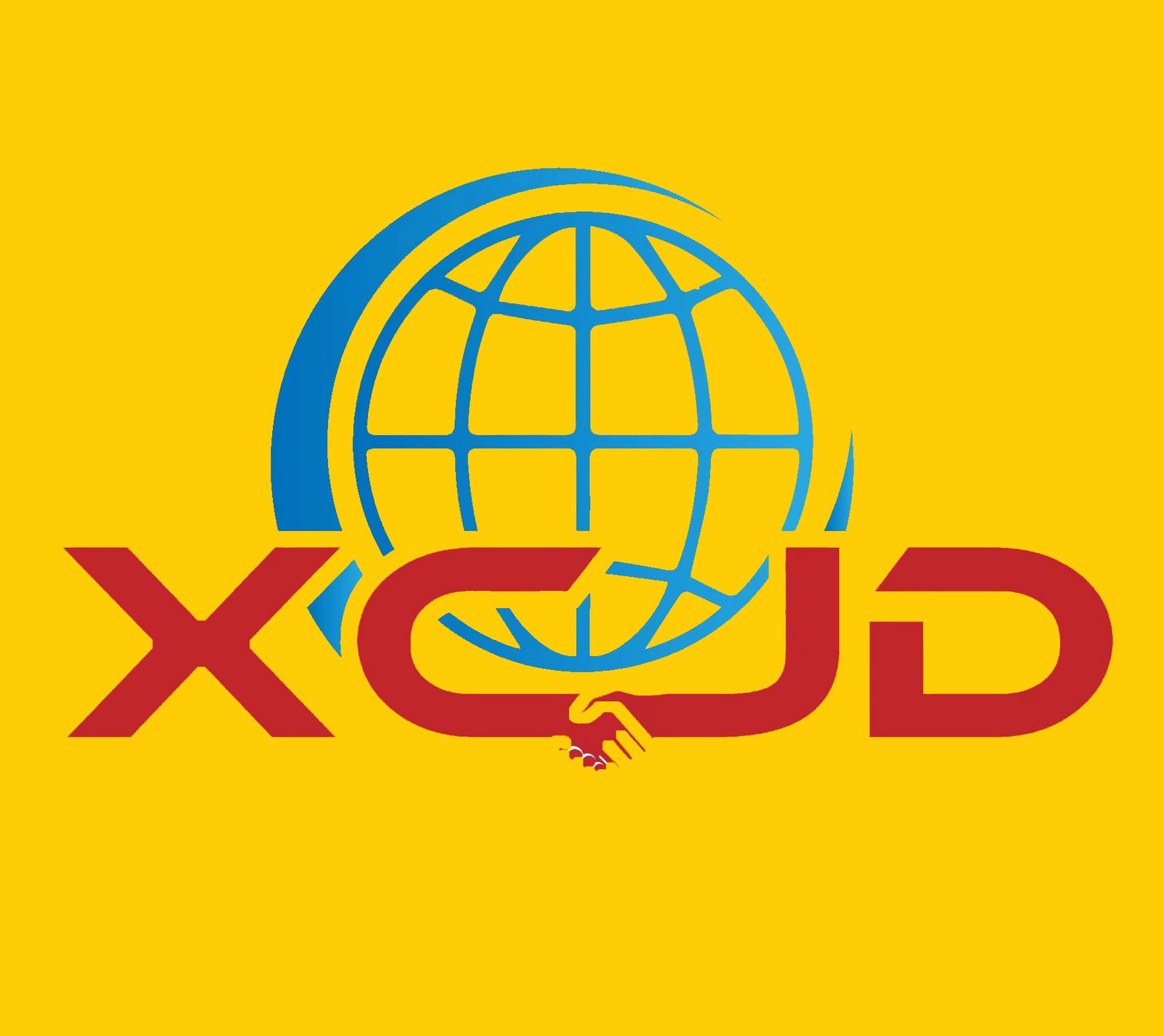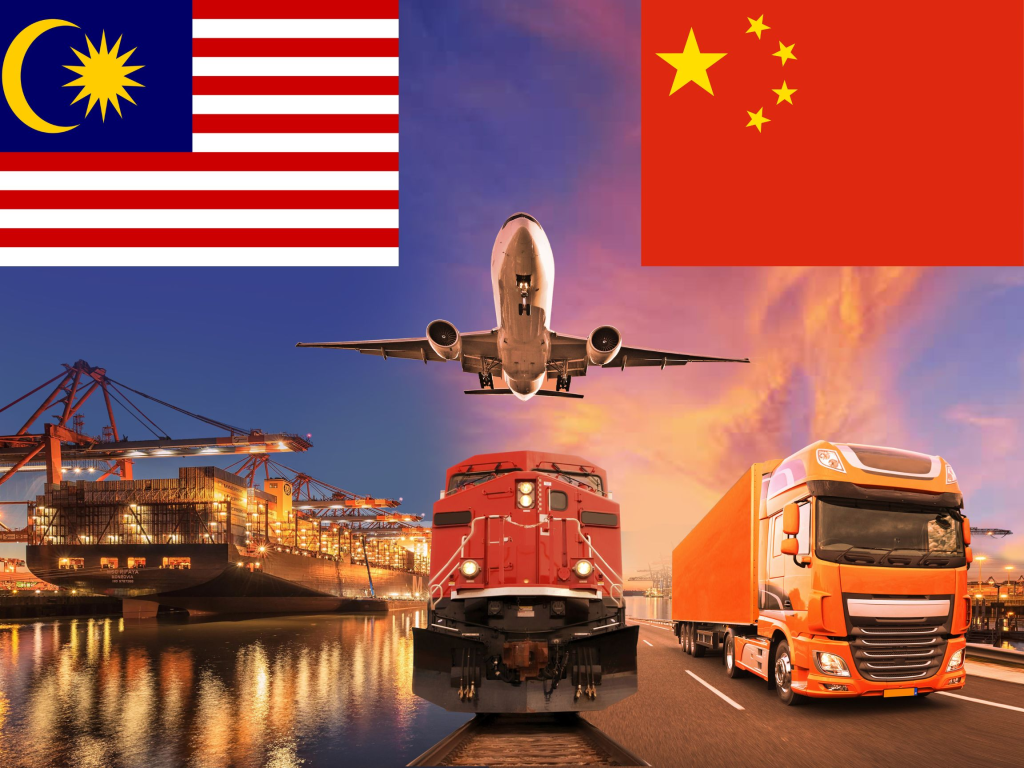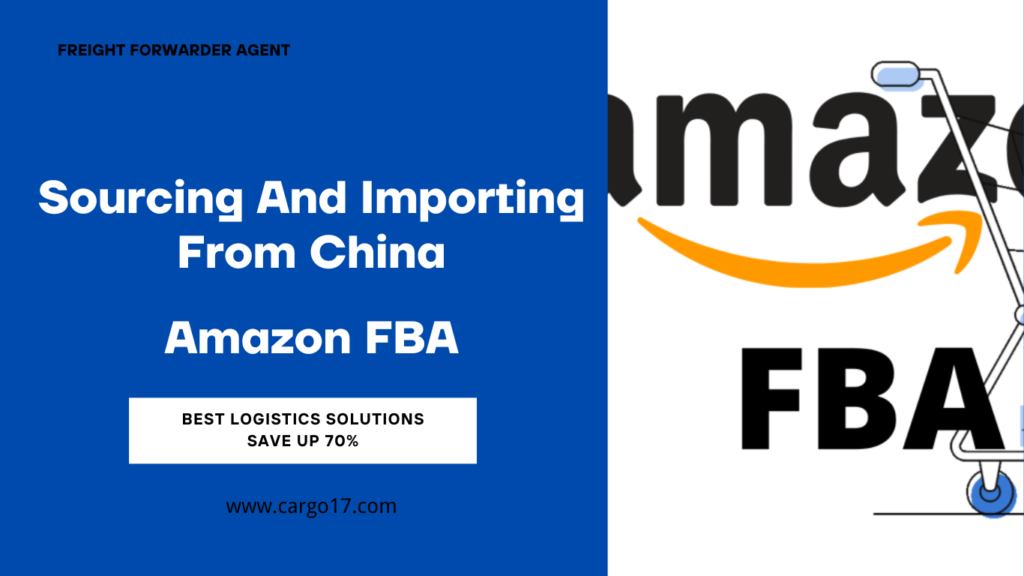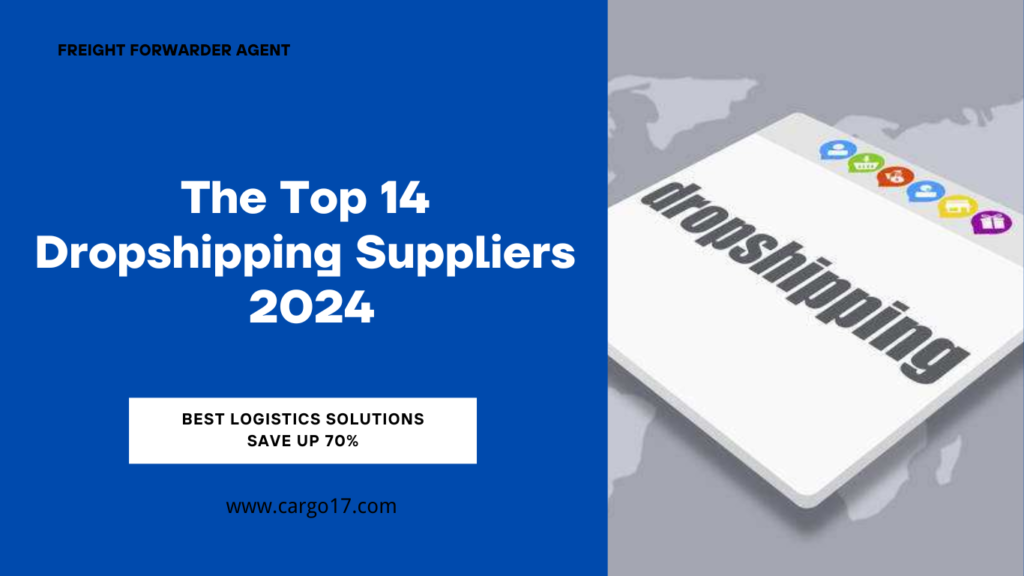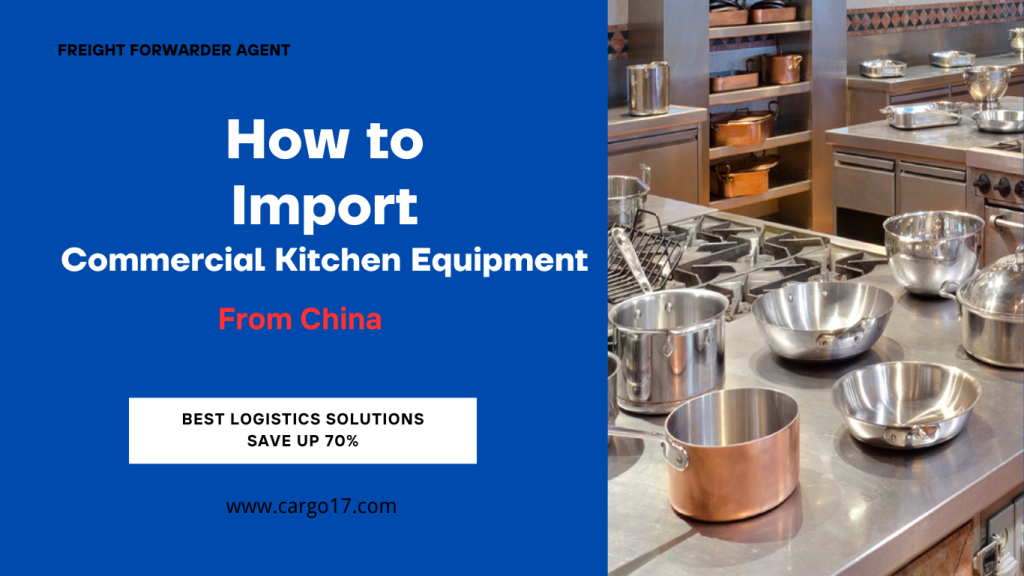A Comprehensive guide shipping from China to Malaysia
This guide equips you with all the information you need while shipping goods from China to Malaysia.
- To import products from China to Malaysia, you will need to have a trusty shipping partner. A good freight forwarder from China will assist you in shipping your imported goods to your intended place in Malaysia.
- XCJD offers various air freight and sea freight services for importing and exporting products to various countries. Other services include: FCL, LCL, Door to door shipping China to Malaysia
- If you buy goods from China to Malaysia without import document, Do not Worry, XCJD offer a Special way to Malaysia by air or sea DDP to door, you only need to pay for us shipping charge, we will finish all the thing after we pick up the goods from your Supplier to you.
- Strong relationships with the shipping industry can lead a freight forwarder to success. This is because having large networks allows a forwarder to seal affordable deals and communicate better with local authorities.
- Lastly, Malaysian customs collect a 6% Goods and Services Tax (GST) for all imported products. But since 2018, the government abolished the GST, replacing it with the Sales and Services Tax (SST) for all import shipments cleared by the customs from 1 September 2018 onwards.
- From China to Malaysia, sea shipping time, in general, is estimated at around 8 to 16 days from port to port. Time delivery to West Malaysia by courier service is around 15 business days, and to East Malaysia, it is around 15 to 18 business days
- XCJD is one of the biggest providers of sea freight services from China to anywhere in Malaysia. We handle every step of the logistics chain: packing, storage, freight, customs clearance, delivery, unloading¡ to ensure a hassle-free shipment to every single customer who works with us.
- Don’t lose track of your air shipment! XCJD will provide a unique tracking number for your shipment, that will enable you to always be kept on the loop on the status of your parcel.
What Goods Can Be Imported from China to Malaysia?
China manufactures and produces several goods that are exported to various countries across the globe, including Malaysia. Here are the strongest products being imported by Malaysia from China:
Electronic goods and machines, including:
- Integrated circuits
- Computers and its parts
- Telephones
- Broadcasting equipment
- Office machine parts
- Circuit boards
- Transformers
- LCD panels
- Lifting machinery
- Air pumps
- Low-voltage protection equipment
- Metals and steel bars (iron, aluminum, refined copper, flat-rolled steel, iron products)
- Refined petroleum
- Plastic products
- Safety glasses
- Textiles and garments
- Agricultural produce (onions, cabbages, dry vegetables, citrus, apples, pears, etc.)
- Commercial food products
- Frozen fish and seafood products
- Vehicle parts
- Furniture
As you can see, this is an exhaustive list of products that reach Malaysia from China. And as such, it pays to know how these goods are regulated, imported, and shipped to its destination country Malaysia.
How to Ship Goods from China to Malaysia?
Traders wishing to import goods from China to Malaysia are covered by several Malaysian import regulations. However, these regulations are deemed more liberal than those of its neighboring ASEAN countries’ more stringent procedures.
Registration and Goods Licensing
Import procedure in Malaysia starts with you registering your company with the Companies Commission of Malaysia.
After successfully registering your company, you will then be required to apply for an import license in Malaysia. The license will be processed by the Ministry of International Trade and Industry (MITI). It takes approximately 7 working days for the license to be processed and granted upon receipt of the completed application.
Malaysia’s General Open License allows most goods to be freely imported to the country. But some specific sectors have restrictions in place. These sectors include:
- Cars and its related components
- Steel and iron industries
- Cement
- Polypropylene and polyethylene
Some sectors face restrictions in terms of approval. The nature of these sectors requires them to be carefully screened first for safety and quality. Electrical products, food items, and veterinary products all fall under these regulated sectors.
Furthermore, all livestock products and processed meat need to pass the following regulations before being granted an import license:
- They must be certified Halal. This means that the food is permissible as it adheres to Islamic law.
- The products should come from slaughterhouses inspected and approved by both Islamic religious authorities and Malaysian veterinary officials.
General Import and Export Documents Required for Malaysia
Malaysian custom officials will require the following documents when bringing in goods from China:
- Customs Export or Import Declaration
- Certificate of Origin – China
- Bill of Lading
- Packing List
- Commercial Invoice
- Letter of credit (if used)
- Proof of fare payment
Apart from these documents, you need to fill up Customs Form No. 1. This is a declaration form stating the following information:
- Type of goods
- Country of origin
- Weight
- Quantity of goods
- Description of crates or packages
- Number of crates or packages
- The overall assessed value of goods
Quotas for Imported Goods
Unlike other countries, Malaysia does not frequently apply quotas to most imported products. Exceptions to this rule would be products that are already manufactured and available in Malaysia, such as meat, fruits, vegetables, rice, sugar, and liquid milk. Quotas are applied to these products to favor local production instead of getting imports from outside Malaysia.
In extreme cases where Malaysia deems its local production as self-sufficient, a ban on importing the aforementioned products may be imposed.
Customs Tariff Code Malaysia
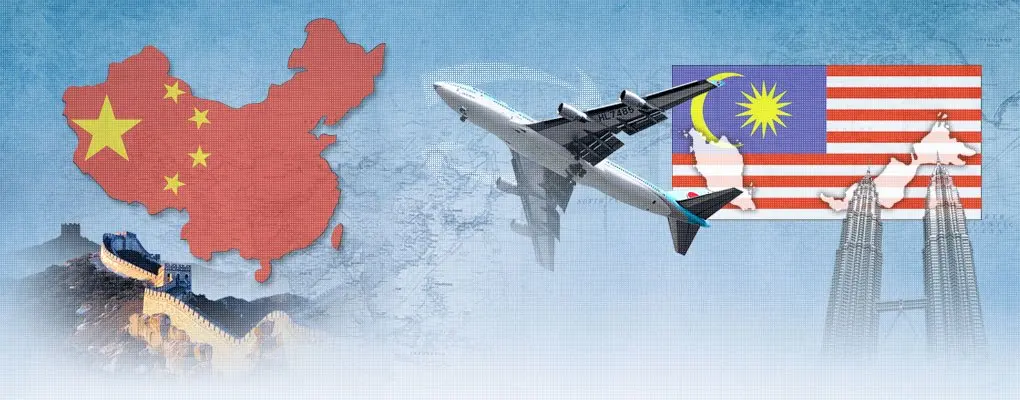
Tariff codes are product-specific codes used to ensure a uniform product classification across the globe. These codes are also a requirement in official shipping documents since these will be used for tax assessment. Tariff codes are imposed on all global commerce products, including in Malaysia.
Tariff codes consist of a string of digits, usually not less than six digits, and could be up to ten digits. If the tariff code is less than six digits, it means the product it pertains to represents a broad category of goods. The more digits a code contains, the more specific the product it represents.
The World Customs Organization (WCO) maintains tariff codes in general. The codes are then documented in the Harmonized System (HS) or Harmonized Tariff Schedule (HTS).
Malaysia’s customs classification is based on 2002’s Harmonized System (HS). The country has two systems of tariff classification:
- Harmonized Tariff Schedule (HTS) – The tariff coding applied for goods coming from countries that are not members of the Association of Southeast Asian Nations (ASEAN). This is used for trading up to the six-figure level.
Since China is not part of the original ASEAN member states, HTS is often used for tariff computations for goods coming from this country.
- ASEAN Harmonized Tariff Nomenclature (AHTN) – The tariff classification applied for all ASEAN member states.
Customs tariff code Malaysia can be checked online through this tariff site. Here, you can search for the tariff codes corresponding to the products you want to import to Malaysia from China.
Import Duty Rate Malaysia
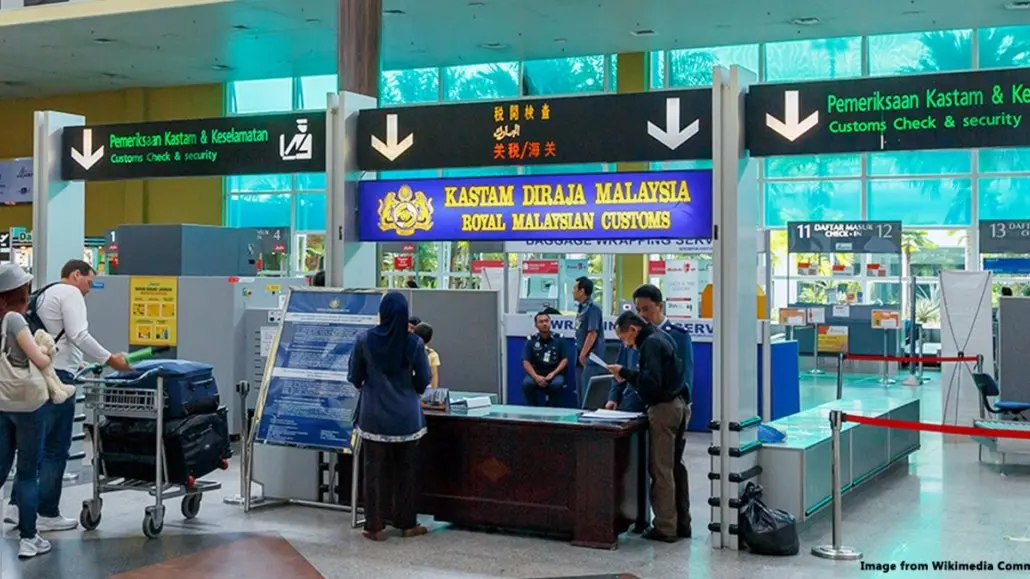
Tariffs and taxes associated with importing goods from China to Malaysia cover different ranges. Tariff rates are computed ad valorem, that is, the tax amount is equivalent to the present value of the product. Tariff rates range from 0-50%, but the average rate range for industrial products imported to Malaysia lies at 6.1% to 7.7%.
A higher import duty rate Malaysia is imposed for these reasons:
- The product is considered as “sinful”, such as alcoholic beverages and pork products.
- The goods imported are already available locally in Malaysia.
Meanwhile, reductions in tariff rates are applied when importing raw materials that will be used to manufacture exported goods, especially if these raw materials cannot be easily sourced inside Malaysia
Exemptions in customs duty and sales tax may also be applied to limited situations. For instance, if you want to import goods that have a FOB value of below MYR 500, and your products will enter Malaysia through certain international airports such as Penang or Kuala Lumpur, then you are eligible for customs duty tax exemption.
Lastly, Malaysian customs collect a 6% Goods and Services Tax (GST) for all imported products. But since 2018, the government abolished the GST, replacing it with the Sales and Services Tax (SST) for all import shipments cleared by the customs from 1 September 2018 onwards.
All payments and taxes must be settled with the Royal Malaysian Customs Department first before your shipments are released.
China and Malaysia’s Trading Agreements

Malaysia holds bilateral Free Trade Agreements (FTAs) with several countries and ASEAN member states. This allows Malaysia to freely transact with traders from other countries to facilitate seamless imports and exports of goods.
Now, Malaysia has trading agreements with China through its partnership in the ASEAN Trade in Goods Agreement. China is one of the five countries who partnered with Malaysia through regional FTAs.
A major benefit of trade partnerships between Malaysia and China include reduced tariffs for goods to be imported and exported by both countries. Since you’ll be shipping goods from China to Malaysia, you may check if your products are qualified to get reduced tariffs.
Prohibited and Restricted Items for Malaysia Imports
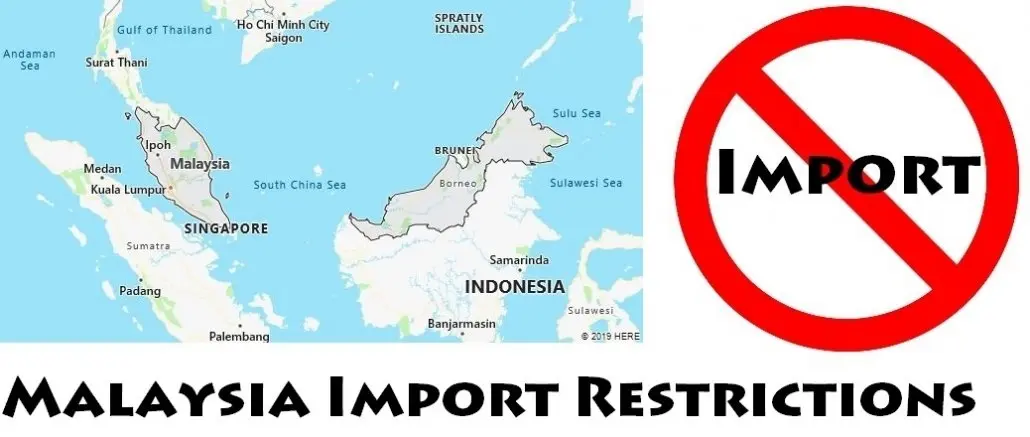
Malaysia completely bans import of the following items:
- Textiles with imprints of Quran verses
- Flick knives and daggers
- Piranha fishes
- Alcoholic beverages with more than 3.46 mg of intoxicating substances per liter
- Counterfeit money
- Pornographic and indecent materials in whatever medium
- Pencils and pens
- Products that resemble syringes
- Poisonous chemicals
- Lightning arresters with radioactive materials
- Turtle eggs
- Sodium arsenate
- Specific fruits coming from Indonesia or the Philippines – Rambutan, pulsan, longan, cocoa pods, and Nam Nam fruits
- Certain broadcast receivers capable of capturing frequencies within 68-87 Mhz and 108-174 Mhz
- Devices that can be detrimental to the peace and interests of Malaysia
Illicit drugs are also absolutely prohibited from being imported to Malaysia. These drugs include, among others:
- Morphine
- Marijuana
- Candu
- Heroin
Importing illegal drugs to Malaysia via drug trafficking schemes is punishable by death by hanging. Prescription drugs can only be imported to Malaysia with a license from Malaysia’s Ministry of Health.
Meanwhile, these products can be imported to Malaysia only under strict permits from concerned government authorities and with an import license issued by the Malaysian government:
- Safety helmets
- Motor vehicles
- Egg inside their shells
- Live animals – primates
- Toy guns, toy pistols, and imitation arms
- Imitation hand grenades
- Clothing articles meant as protection from attacks such as bullet-proof vests and steel helmets
- Certain kinds of video machines
- Fireworks and explosives
- Soil, live insects, snails, rats, and cultures of organisms causing plant diseases
- Plants and plant products
- Rice, padi, and rice products
- Batik sarong
- Live fish
- Animal fats and oils
- Pesticides for household and agricultural use
- Live and dead corals
- Pharmaceutical products
- Equipment used to brew beer at home
- Live fish
- Electronic domestic machines with voltages of 50 volts, 120 volts DC, or more
- Public telecommunication network equipment
- Hazardous or toxic wastes
Again, all these products and goods are generally not allowed to be imported to Malaysia, especially those under the absolutely banned products. It’s best to check directly with the Royal Malaysian Customs Department if you think your products may be included among those on these two lists.
Shipping from China to Malaysia – Transit Must-Knows
To import products from China to Malaysia, you’ll need to have a trusty shipping partner. A good freight forwarder from China will assist you in shipping your imported goods to your intended place in Malaysia.
Now, there are several things to consider and understand about shipping your goods from your place in China to your destination place in Malaysia. We’ll cover all the basics regarding Incoterms, air freight, and sea freight here.
Shipping Incoterms
Incoterms are universal terms used in shipping that defines transactions happening between the product importer and the exporter. Incoterms is also an abbreviation for “International Commercial Terms”. These terms serve as a clearer way to communicate contract provisions between buyers and sellers, thereby reducing the risks of misinterpretation between the two parties.
Incoterms are important in shipping because it lets the buyer and seller:
- Understand the logistics and transport management of the products, from the time it leaves the country to its entry to the destination country.
- Know who shoulders the tasks, risks, responsibilities, and costs associated with the products’ shipping process.
Furthermore, incoterms facilitate a better understanding of the main obligations and responsibilities for goods transport. These obligations and responsibilities include the following:
- Point of delivery – Incoterms define when the point of change happens, that is, the products being turned over from seller to the buyer.
- Export and import formalities – Incoterms define who arranges the processes and formalities for export and import.
- Transportation costs – Incoterms define who shoulders the cost of goods transportation.
- Insurance costs – Incoterms define who shoulders the goods’ insurance coverage.
Now, here are some incoterms you may encounter during your shipping from China to Malaysia. These incoterms are all updated and included in the list of Incoterms 2020. Note that some old incoterms such as Delivered Duty Unpaid (DDU) aren’t included in this updated list anymore:
1. Ex Works (EXW)
The seller has minimum responsibility for the transportation of the goods. The seller will ensure that the products are packaged properly and are available at a specific place, typically a warehouse, factory, or depot. Now, the buyer will be the one to pick up the goods, load them to a transport vehicle, and deal with all export and import procedures until the goods reach its final destination.
EXW is used for goods transported through any mode. It can also be used for more than one transport mode. However, EXW may not be practical for the buyers and they agree to these terms only at their risk.
2. Free Alongside Ship (FAS)
The seller shoulders responsibilities for his goods until the time he has delivered the products alongside the ship at the specified port. By this time, the goods have already been cleared for export and the seller has already paid for transport costs. Once alongside the vessel, the buyer takes full responsibility for the goods.
FAS is only used for goods transported through inland waterways and by sea. It also applies only to non-containerized goods and bulk cargos.
3. Free on Board (FOB)
In FOB, the seller should load the products onboard the ship at a port chosen by the buyer. The seller should ensure the goods are already cleared for export. Risks and costs shall transfer to the buyer after the goods are loaded inside the vessel.
4. Cost and Freight (CFR)
Seller shoulders the costs and freight, delivering the goods to the destination port. The goods are then loaded onto the vessel. The risk and costs shall transfer to the buyer just before the main carriage takes place, with the goods already loaded inside the vessel.
5. Cost, Insurance, and Freight (CIF)
CIF is entirely similar to CFR, with the addition of insurance paid for by the seller. The seller arranges for the insurance coverage from the exit port to the destination port. CIF only requires a minimum coverage level for the insurance.
6. Delivered Duty Paid (DDP)
In DDP, the seller takes full responsibility and shoulders all costs of goods delivery, insurance, import duties, and required taxes as needed. The seller also handles import clearance procedures. Risks and responsibilities are only transferred to the buyer when the goods are ready for unloading and are made available to the buyer.
7. Carriage and Insurance Paid to (CIP)
CIP dictates that the seller will shoulder the carriage and insurance costs of the goods until its destination port. However, the risk passes on from seller to buyer as soon as the products are handed over to the first carrier.
8. Free Carrier (FCA)
The seller arranges and shoulders expenses of pre-carriage from the seller’s warehouse to a specific place (such as forwarder’s warehouse, transport hub, terminal, etc). Risk transfers to the carrier (or the first carrier, in case of multiple transfers) once the vehicle arrives at the specified place to load the goods. Note that if the specified place falls under the seller’s premises, it is still the seller’s responsibility to load the goods to the vehicle.
The buyer will take all expenses and risks after the goods are delivered at the specified place. However, the seller remains responsible for export clearance.
Containerized goods often follow the FCA incoterm.
9. Carriage Paid To (CPT)
In CPT, the seller pays for the carriage of the goods, but not for the insurance costs. The risk transfers to the buyer once the goods are in the hands of the carrier. From then, the buyer may arrange for an insurance cover from the point the goods are taken in charge by the carrier.
10. Delivered at Place Unloaded (DPU)
DPU was originally termed as Delivered at Terminal (DAT) in Incoterms 2010. The name has since been updated to Delivered at Place Unloaded (DPU) in Incoterms 2020.
The seller takes responsibility for arranging goods carriage, goods delivery, and goods unloading from the arrival conveyance. The risk transfer to the buyer once the products are unloaded under the seller’s responsibility. The buyer will then handle the import clearance, taxes, and import duties.
11. Delivered at Place (DAP)
DAP is similar to DPU in that the responsibilities for carriage arrangement and delivery to named place. However, its difference is that the risk transfers to the buyer once the products are already available for unloading. The seller’s responsibility ends before unloading, unlike in DPU where the seller is still responsible for unloading.
Those are the 11 incoterms you should know about shipping from China to Malaysia. Note that these incoterms are also applicable for shipping anywhere in the world, in whatever country you wish to trade goods too.
Estimated Shipping Time from China to Malaysia

A major question many traders ask is how long is the shipping time from China to Malaysia. Transit times between the two countries take approximately 8-14 days. This estimated shipping time could be shorter or longer depending on many factors such as:
- Port of loading
- Port of entry
- Length of the shipping route
- Shipment size
Airfreight and sea freight have different estimated shipping times as well. In general, air freight arrives at the destination country faster than sea freight.
Best Way to Ship Goods To and From Malaysia
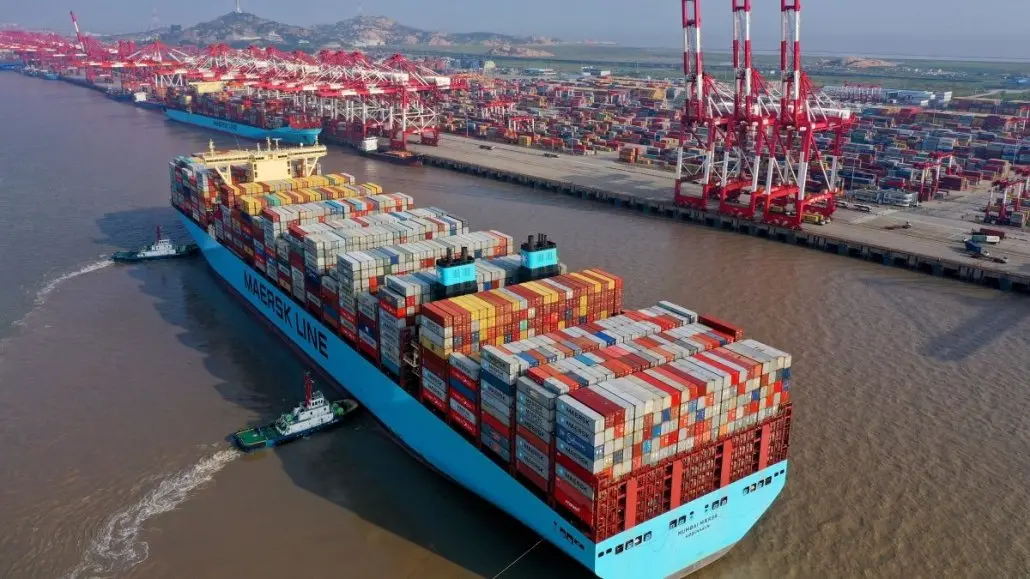
There are two main ways to ship goods to and from Malaysia: Air freight and ocean freight. We’ll compare the two so that you can decide which is the best one to use for your shipping needs.
1. Air Freight
Airfreight uses special airplanes to carry goods and cargo by air. Cargo aircraft carry freight in the plane’s belly and main deck through sideloading or nose-loading.
Most products imported from China to Malaysia can be loaded onto a plane for air freight delivery. But these are the common goods carried through air freights:
- Electronics
- Pharmaceutical products such as temperature-sensitive vaccines
- Automotive parts
- Sports equipment
- Apparel and textiles
- Hazardous materials
Advantages of choosing air freight include:
- Faster delivery and product fulfillment – goods arrive at the destination airport in 3-5 days for deferred flights (the standard option) and 2-3 days for express services
- Large capacity for specialized cargo planes
- Serves a wide range of domestic and international locations
- Reduced risk of theft and damage
Now, if you wish to move your imports from China to Malaysia using air freight, you’ll need basic knowledge of the main airports in both countries. You should know this so you’ll be aware of where your goods will depart from and arrive in both countries.
Main Airports in China
- Guangzhou Baiyun International Airport
- Shanghai Pudong International Airport
- Xiamen Gaoqi International Airport
- Shenzhen Bao’an International Airport
- Hangzhou Xiaoshan International Airport
- Xi’an Xianyang International Airport
- Zhengzhou Xinzheng International Airport
- Chengdu Shuangliu International Airport
- Hong Kong International Airport
Main Airports in Malaysia
- Kuala Lumpur International Airport
- Langkawi International Airport
- Kuching International Airport
- Penang International Airport
- Kota Kinabalu International Airport
- Senai International Airport
Finally, XCJD Global Logistics Service air freight is your best choice if you want to save time in shipping your imports from China to Malaysia. You can also utilize air freight if your shipment weighs less than 200 kg and is smaller than 2 cubic meters.
2. Sea Freight
Sea freight utilizes shipping lines to move imports or exports via sea. The products are typically packaged in large shipping containers, then your chosen freight forwarder will book spaces for these containers with the ship’s agent. The goods are then placed on a shipping line at the port of origin, then shipped via ocean to the receiving port of destination.
Advantages of choosing sea freight include:
- Cheapest among all logistics services; shipping cost from China to Malaysia is generally affordable
- Lets you ship bulky goods in huge quantities
- An eco-friendly way to transport
Meanwhile, disadvantages include slow transit times and vulnerability to shipment damage and delays due to weather obstructions. Shipping time from China to Malaysia may take longer than a week when sea freight is used.
Several importers from China to Malaysia still choose XCJD Global Logistics Service sea freight as a reliable way to move their goods to various destinations in Malaysia. This is largely due to the availability of several ports in both China and Malaysia.
Ports in China
- Port of Guangzhou
- Port of Shenzhen
- Port of Xiamen
- Victoria Harbour/Port of Hong Kong
- Port of Ningbo-Zhousan
- Port of Shanghai
- Port of Tianjin
- Port of Dalian
- Qingdao Port
Ports in Malaysia
- Port Klang (Kelang, Kuala Lumpur – the largest port in Malaysia
- Port of Penang, Georgetown, Penang Island
- Johor Port, Pasir Gudang
- Kuantan Port, Malaysian East Coast
- Port of Tanjung Pelepas, Johor, Malaysia
- Port of Bintulu, Sarawak
- Port of Malacca
Companies Importing Goods from China to Malaysia
There are already several Chinese companies that import various kinds of goods from China to Malaysia. We’ll list them down quickly here:
- Alibaba – A large retailer and leading e-commerce provider in China.
- Aliexpress – Owned by the Alibaba Group, this is a Chinese online retail service.
- 1688.com – A Chinese online marketplace for wholesale products
- Made in China – A B2B e-commerce platform for suppliers, manufacturers, wholesalers, and exporters
- Global Sources – A media company based in Hong Kong, catering to business-to-business needs
Meanwhile, imports and exports are exhibited in its full glory in the annual Canton Fair, also known as China Import and Export Fair. This gathering is dubbed the largest trade fair in China, with a variety of product exhibits and the largest distribution of overseas buyers.
If you are an online seller or you wish to broaden your perspectives about importing products from China to Malaysia, then, it’s best to visit the Canton Fair regularly.
How to Choose A Reliable Freight Forwarder from China to Malaysia?
A freight forwarder is your strongest ally in moving your imports from China to Malaysia. Hence, take time to think through these considerations in choosing the best freight forwarder for your business needs:
1. Check that the freight forwarder has a valid business license.
Make sure that your prospective freight forwarder is fully licensed to operate by the Chinese government. Ensure that their business license is valid during the period you plan to partner with them.
2. Visit the site’s official website.
Most reliable freight forwarders have an official website where you can find out more about their services. Visit their site and check the testimonials and reviews given by their previous clients as well.
3. Check for a complete offering of cargo services.
It’s best if you can get a forwarder with complete lines of cargo services. That way, you can select if you want to use air or sea freight to move your imports to Malaysia.
4. Inquire about cargo tracking systems.
Reputable freight forwarders implement efficient cargo tracking systems. These systems let you know where your parcels and shipments are in real-time. Hence, you can easily monitor and determine your goods’ transit times to Malaysia.
5. Select a forwarder with good insurance offers.
Cargo insurance is crucial for when something unfortunate happens to the merchandise you’ll import to Malaysia. Hence, you must inquire whether a prospective forwarder offers cargo insurance and its provisions if they do offer one.
6. Find a forwarder with enough networks.
Strong relationships with the shipping industry can lead a freight forwarder to success. This is because having large networks allows a forwarder to seal affordable deals and communicate better with local authorities.
You may ask your prospective forwarder for references and inquire about who they work with. This way, you can check how diversified their industry connections are.
7. Select a forwarder with transparency in pricing.
Go for a freight forwarder who provides transparent rates and includes all the necessary changes in their quote. Changes to pricing structures should be expected in freight forwarders, as the GRIs or PSS adjustments may affect it. But a reputable forwarder makes all these changes transparent so that you, the customer, know exactly what you’re paying for.
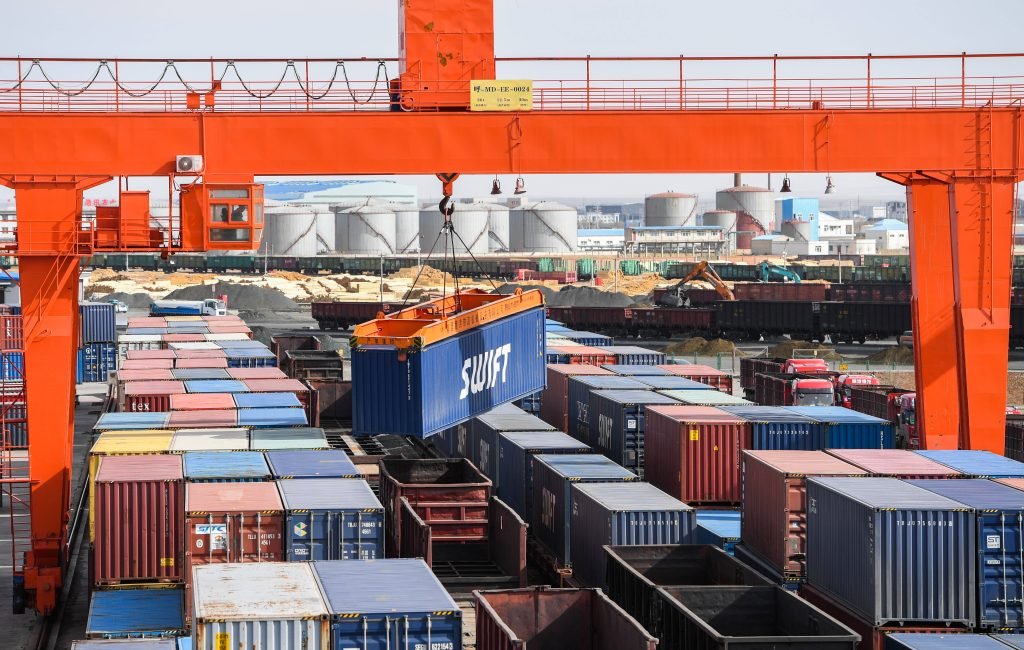
Why Choose XCJD Global Logistics?
Interested in a highly-efficient courier from China to Malaysia? Consider partnering with XCJD Global Logistics Service.
XCJD Global Logistics is a reliable freight forwarder based in Shenzhen, Guangdong province, China. The following points make XCJD Global Logistics a good choice for traders looking for the fastest shipping from China to Malaysia:
1. Vast years of experience
The company has over 10 years of experience in transportation, logistics, freight, and customs brokerage operations. XCJD is well-versed in the various laws and regulations for customs in both China and destination countries such as Malaysia.
2. Complete services for moving shipments
XCJD offers various air freight and sea freight services for importing and exporting products to various countries. Other services include:
- FCL shipping from China to Malaysia
- LCL shipping from China to Malaysia
- Door to door shipping China to Malaysia
XCJD also offers documentation services to ease up your customs document worries.
3. Comprehensive tracking systems
Tracking your products from China to Malaysia is easy with XCJD’s comprehensive tracking system. You can get real-time updates of your shipment’s whereabouts as it transits to its destination in Malaysia.
4. Seamless and quick delivery
XCJD Global Logistics Service prides itself on providing the fastest shipping from China to Malaysia. All efforts are exerted to ensure that your imports arrive in Malaysia promptly.
5. Reasonable and transparent rates
XCJD Logistics offer transparent yet competitive rates for all their logistics services. By partnering with XCJD Logistics, you can get your money’s worth when it comes to shipping from China to Malaysia. You may request a free quote by filling up a quick form on its website.
6. Supersized cargo accommodations
XCJD has a spacious warehouse where all kinds of cargo can be placed. The company can also arrange for special accommodations to fit larger-than-usual cargo shipments and move them quickly from China to Malaysia. Repackaging solutions are also available to make sure your goods are safe during shipping.
7. Responsive customer service
Whether you need to inquire about your shipment status or want to leave suggestions and comments, XCJD’s flexible customer service team is always ready to receive and respond to your messages.
